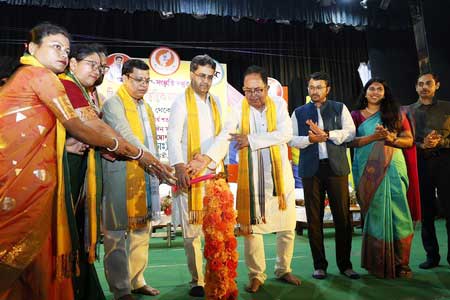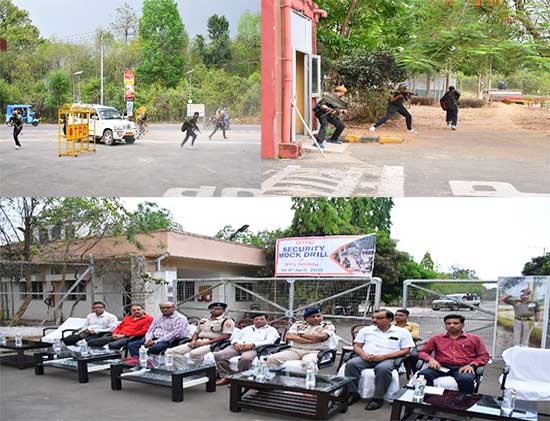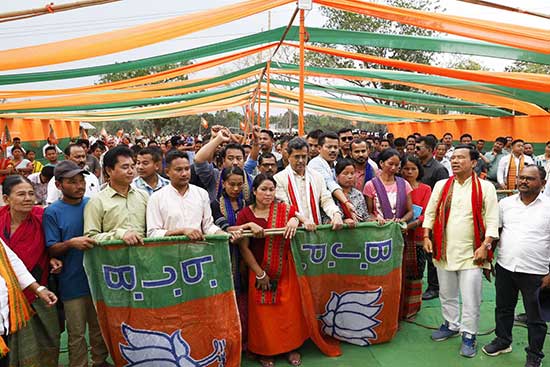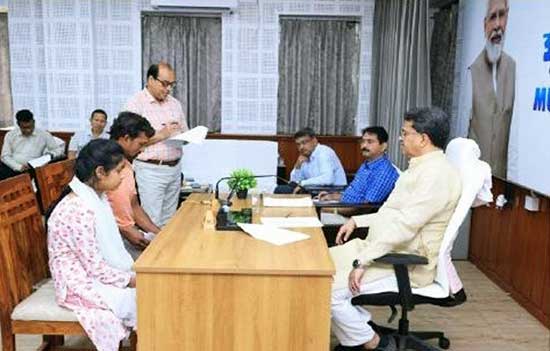Acting on a PIL, the Tripura High Court has issued notices to both the state and Central governments seeking comprehensive reports on the rising HIV cases in the state within two weeks, officials said on Thursday.
Court sources said the PIL was taken up suo-moto by the high court after the reports of an alarming increase in HIV cases and deaths, particularly among the students and the youth of the state.
A division bench of the high court comprising Chief Justice Aparesh Kumar Singh and Justice Arindam Lodh took up the PIL following a letter from Justice T. Amarnath Goud, a judge of the high court, which highlighted the gravity of the issue.
The bench expressed its deep concerns over the rising HIV cases in the bordering state, a court official said.
The court noted that new cases must be identified regularly and necessary actions should be taken at the earliest.
The high court also asked the governments to explain the reasons behind the surge in HIV cases, the measures currently in place, and the strategies to curb students injecting drugs through the intravenous mode, a key factor for the spread of the disease in Tripura.
Between April 2007 and May 2024, 828 students registered as PLHIV (People Living With HIV), 47 of whom died during the 17 years.
The Project Director of Tripura State AIDS Control Society, Samarpita Dutta, said that in 2022-23, 67 persons, including two students, died, while in 2023-24, 44 people died after being infected by HIV.
Presently, Tripura has approximately 8,000 known HIV-positive cases, though experts believe the figure represents only a fraction of the actual numbers, as many cases remain untracked.
The state recorded its first HIV case in 1996. Since then, there has been a marked increase in the number of infections, especially among high-risk groups such as youths using intravenous drugs, female sex workers, truck drivers, migrants, and gay people.








As Rana lands in India, 26/11 martyr Tukaram Omble's brother demands hanging of Tahawwur
On the day Tahawwur Rana, one of the co-conspirators in the Mumbai terror attacks was brought to India, Eknath Omble, the brother of Ashok Chakra awardee and 26/11 martyr Tukaram Omble, urged the central government to hang the terrorist and send a strong message to Pakistan.
India and UK reaffirm free trade agreement, support supply chains
Amid the changing world trade order, India and the UK have reaffirmed their commitment to furthering the bilateral relations between the two nations, including continuing negotiations at pace towards a mutually beneficial Free Trade Agreement (FTA) and Bilateral Investment Treaty (BIT).
Centre appoints special public prosecutor for 26/11 Mumbai terror attack case
The Central government has appointed Advocate Narender Mann as the Special Public Prosecutor for the 26/11 Mumbai terror attack case hearing.
Bhagwan Mahavir's ideals give strength to countless people, says PM Modi
Prime Minister Narendra Modi extended his greetings to the nation on the occasion of Mahavir Jayanti, saying Bhagwan Mahavir's ideals give strength to countless people worldwide.
Trump lowers levies on countries like India for not retaliating
US President Donald Trump on Wednesday announced a lower rate of 10 per cent for 90 days in reciprocal tariffs for trading partner countries that have not retaliated with higher levies on American goods — such as India — and further hiked the levy on China to 125 per cent for hitting back.
HM Shah says Rana’s extradition a major diplomatic win for Modi govt
Union Home Minister Amit Shah has lauded the extradition of Tahawwur Hussain Rana, a key accused in the 26/11 Mumbai terror attacks, as a defining triumph for the administration of Prime Minister Narendra Modi.
Tripura govt committed to preserving old culture, tradition: CM Saha
Tripura Chief Minister Manik Saha on Wednesday said that the BJP government is working to preserve old culture and tradition like Putul Khela (doll game), Jatra (folk theatre) and Natak (drama).